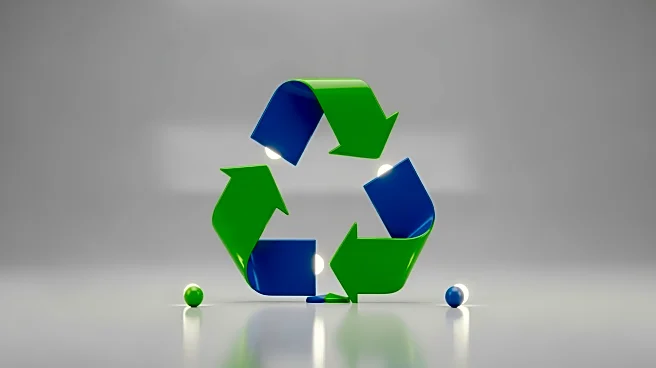What's Happening?
The COP30 climate summit in Belem, Brazil, is underway, with over 190 nations participating in discussions to finalize the agreement. The summit, which runs until November 21, focuses on various themes
including adaptation, cities, infrastructure, water, local governments, tourism, the bioeconomy, waste, and the circular economy. Nations are submitting updated Nationally Determined Contributions (NDCs) under the Paris Agreement, aiming to enhance their climate action plans. The summit also features discussions on contentious issues such as finance and climate justice, which are set for a stocktake and vote. A special guest interview with Michael Sadowski from The Circulate Initiative highlights the importance of waste management and the circular economy in reducing global emissions.
Why It's Important?
The COP30 summit is crucial for advancing global climate commitments and addressing pressing environmental issues. The updated NDCs are vital for countries to demonstrate their commitment to the Paris Agreement and to enhance their climate action strategies. The focus on waste management and the circular economy is significant as these areas offer substantial opportunities for emissions reductions. The discussions on finance and climate justice are critical for ensuring equitable climate solutions and support for vulnerable nations. The outcomes of COP30 could influence global climate policies and drive sustainable practices across industries.
What's Next?
As the summit progresses, nations will continue to negotiate and refine their climate plans. The stocktake and vote on contentious issues will be pivotal in determining the direction of the final agreement. The discussions on a new global plastics treaty, which collapsed earlier, may be revisited, offering a chance for renewed negotiations. Stakeholders, including governments, businesses, and civil society, are expected to respond to the summit's outcomes, potentially leading to new initiatives and collaborations aimed at tackling climate change and plastic pollution.
Beyond the Headlines
The emphasis on the circular economy and waste management at COP30 highlights a shift towards more sustainable practices that can have long-term benefits for the environment. The integration of these themes into global climate discussions reflects a growing recognition of their importance in achieving emissions reductions. The summit's focus on climate justice underscores the ethical dimension of climate action, emphasizing the need for inclusive and equitable solutions that address the needs of all nations, particularly those most affected by climate change.










